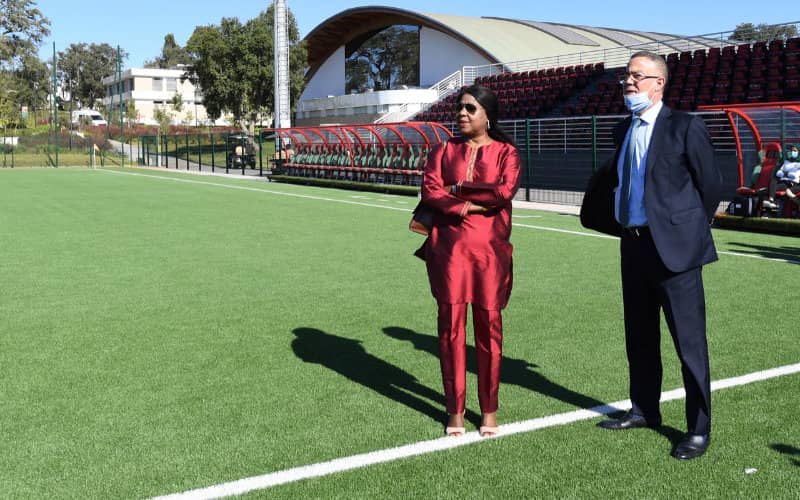Morocco Leverages Football Diplomacy to Boost African Influence

In order to confirm its leadership in Africa, Morocco has activated another lever, and not the least, to establish its influence on the continent in recent years: football. Boosted by the personal involvement of the king, the kingdom is betting more than ever on sport to perfect its diplomatic relations and its role as a regional player.
To this end, the Royal Moroccan Football Federation (FRMF), supported by the government, is being used to offer a prime spot to African countries, especially sub-Saharan ones, in its organizational chart. For this purpose, several initiatives and partnerships are being forged with African federations to materialize the royal will to move towards an active solidarity between African peoples, reports the newspaper Le Monde.
In this perspective, the FRMF has entered into partnerships with 44 African federations, mainly sub-Saharan ones. "These are two-year renewable contracts, explains Omar Khyari, a close collaborator of Fouzi Lekjaa, the president of the Royal Moroccan Football Federation (FRMF). And the partnerships are adjusted according to local realities." Concretely, Morocco undertakes to support the realization of sports infrastructures, the training of executives, the hosting of training camps for national teams, the training of referees and the organization of friendly matches.
For example, the newspaper cites the many international matches of countries, whose stadiums are not approved by CAF, which take place in Moroccan stadiums. In the imbroglio, countries such as Mali, Djibouti, Niger, Burkina Faso, or Guinea have turned to Morocco, a host country that has modern and adequate infrastructures.
"All these federations have signed a partnership with Morocco. As their stadiums have not been approved - except for Guinea, which was excluded due to a particular situation [linked to the September coup] - they naturally turned to Morocco to ask to be able to play there. Which we have obviously accepted," says Khyari.
Gradually, sport has become a tool of Moroccan diplomacy. "More than sports diplomacy, I think we should talk about football diplomacy, because all the efforts are concentrated on this discipline," emphasizes Moncef El Yazghi, a researcher in sports politics.
Morocco is gradually reaping the fruits of these investments and this wave of solidarity. The Kingdom is a candidate to host the 2030 World Cup. If the Moroccan candidacy was unfortunately not selected for the 2026 World Cup, it nevertheless received the support of 35 African countries.
Despite the disappointment of the contrary vote of the countries considered as "brothers" (Saudi Arabia, Kuwait, Bahrain, Jordan, etc.), this attitude has only reinforced the notoriety of the Kingdom and confirmed its diplomatic supremacy, particularly in Africa, earning it the esteem of journalists and sports and political analysts around the world.
In the event that the African continent wished to host the Olympic event, Morocco, along with South Africa, would be the only countries in a position of strength to claim to represent Africa in the race for these Games.
Related Articles
-

Spain’s Wonderkid Lamine Yamal Dazzles in World Cup Qualifier, Faces Passport Drama
8 September 2025
-

Morocco’s Atlas Lions Roar to 7th Straight World Cup Qualifier Win, Crushing Zambia’s Hopes
8 September 2025
-

Mbappé Backs Dembélé and Hakimi for Ballon d’Or Glory, Eyes Future Win
8 September 2025
-

Algeria Seeks World Cup Redemption in Historic Casablanca Clash Against Guinea
8 September 2025
-

Morocco Aims to Extend World Cup Qualifying Dominance Against Struggling Zambia
8 September 2025